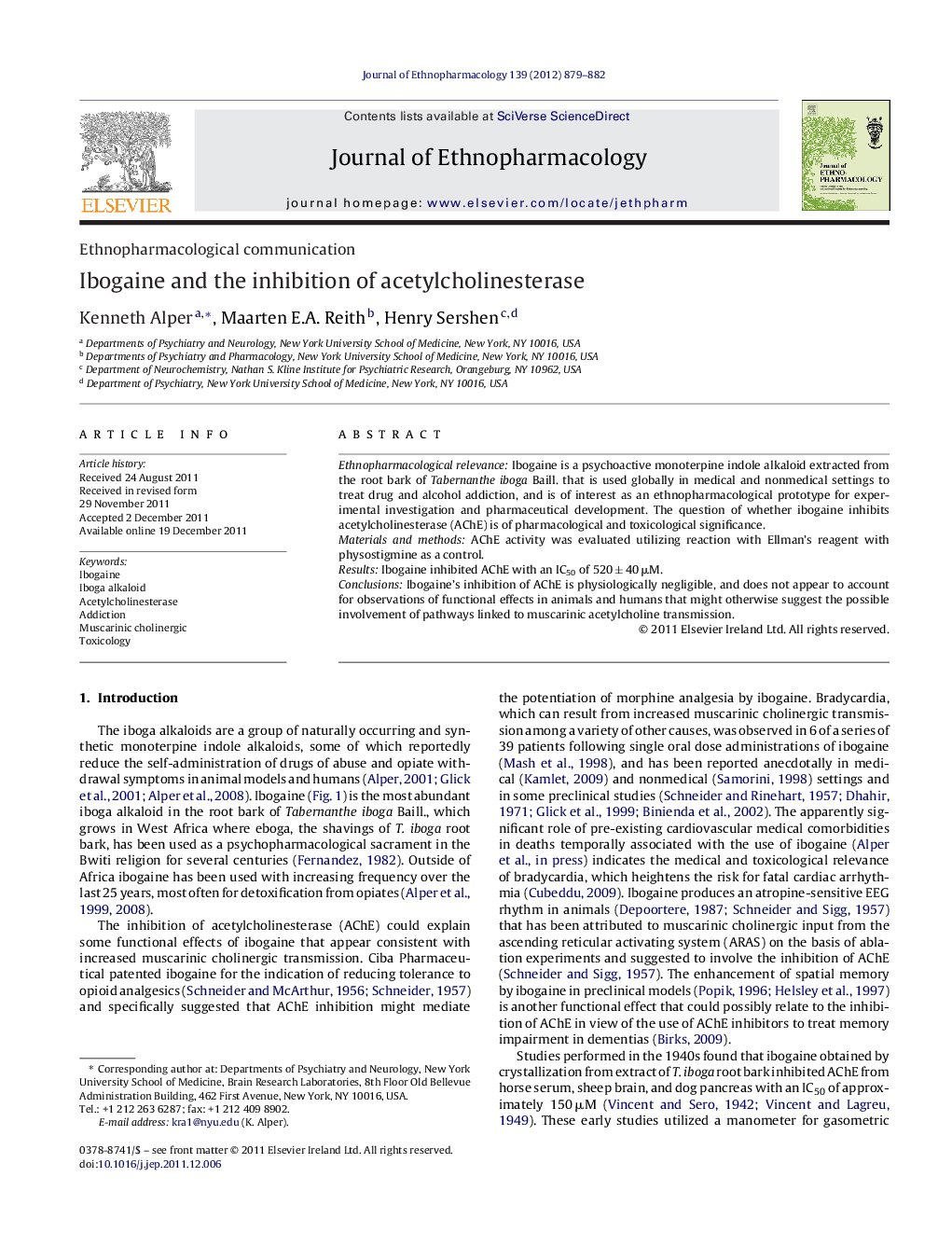| Article ID | Journal | Published Year | Pages | File Type |
|---|---|---|---|---|
| 5839654 | Journal of Ethnopharmacology | 2012 | 4 Pages |
Ethnopharmacological relevanceIbogaine is a psychoactive monoterpine indole alkaloid extracted from the root bark of Tabernanthe iboga Baill. that is used globally in medical and nonmedical settings to treat drug and alcohol addiction, and is of interest as an ethnopharmacological prototype for experimental investigation and pharmaceutical development. The question of whether ibogaine inhibits acetylcholinesterase (AChE) is of pharmacological and toxicological significance.Materials and methodsAChE activity was evaluated utilizing reaction with Ellman's reagent with physostigmine as a control.ResultsIbogaine inhibited AChE with an IC50 of 520 ± 40 μM.ConclusionsIbogaine's inhibition of AChE is physiologically negligible, and does not appear to account for observations of functional effects in animals and humans that might otherwise suggest the possible involvement of pathways linked to muscarinic acetylcholine transmission.
Graphical abstractDownload high-res image (21KB)Download full-size image
